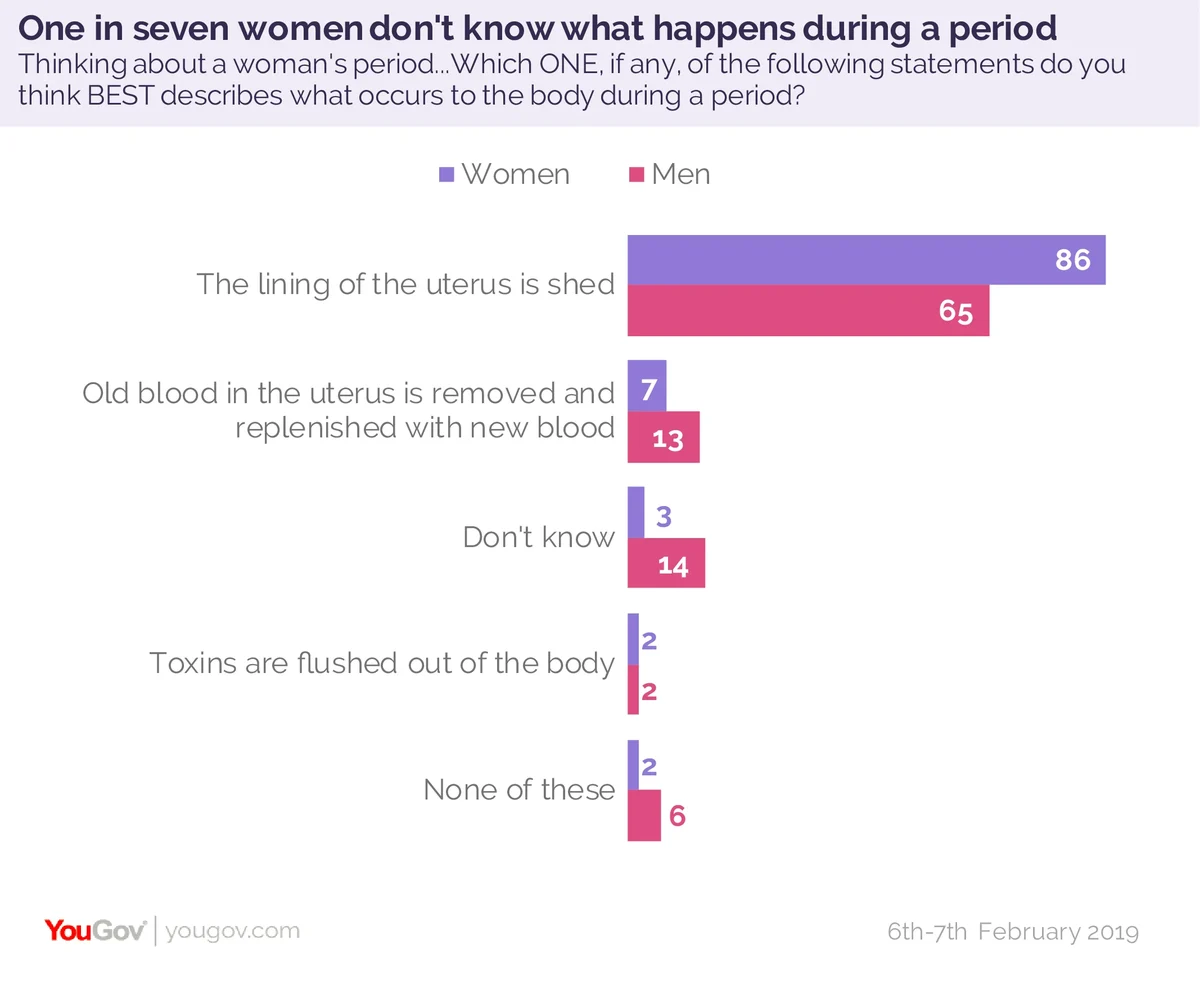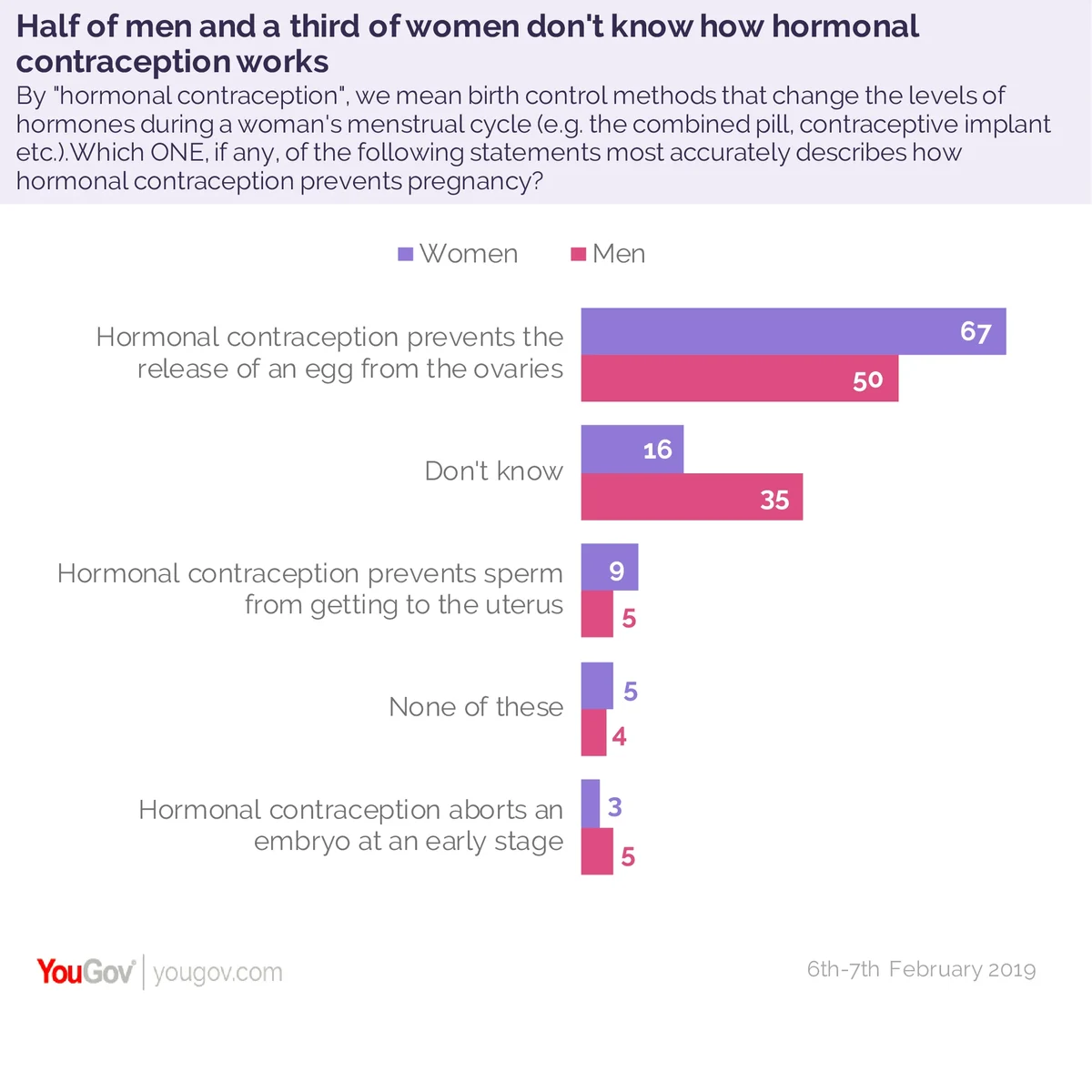Certain sex ed lessons seem to have been forgotten by a worrying number of Brits: like what a period is, how menstrual cycles work, or what hormonal contraception does
Certain sex ed lessons seem to have been forgotten by a worrying number of Brits: like what a period is, how menstrual cycles work, or what hormonal contraception does
In a series of surveys on how much we understand about women’s bodies, YouGov explored how much men and women know about what exactly happens during a period, when a woman could become pregnant, and how hormonal contraception prevents pregnancy.
The results showed a considerable proportion of both men and women don’t understand the basics of the menstrual cycle – which could hinder their ability to make informed decisions when it comes to family planning.
What happens during your period?
Respondents were asked which, if any, of the following statements best described what happened to the body during a period: toxins are flushed out of the body sperm in the uterus is removed, old blood is replenished with new blood, or - the correct response - the lining of the uterus is shed.
One in three men (35%) and one in seven women (14%) failed to identify that 'the lining of the uterus is shed' was the correct response.

One in fifty of both men and women chose 'toxins are flushed out of the body' as the correct answer. One in six men (13%) and one in fifteen women (7%) thought 'old blood in the uterus is removed and replenished with new blood' was the right option. 14% of men and 3% of women said they 'don't know'.
65% of men and 86% of women chose the correct answer.
When could a woman become pregnant?
The survey also showed a lack of understanding of at what points during the menstrual cycle it is possible for a woman to become pregnant.
While there are periods of the month where a woman’s body is more fertile, “there is no ‘safe’ time of the month when you can have sex without contraception and not risk becoming pregnant”, the NHS website says.
This is because women’s menstrual cycles can vary greatly: the time of the month at which the egg is released from the ovary is not always the same. Further, sperm can live within the uterus for several days after sex – so even if a woman is not able to become pregnant on that day, it could still happen in the following days.
However, one in six women (16%) and one in nine men (11%) and think it is impossible for a woman to become pregnant just before, during, or just after her period. Another third of men (29%) and ninth of women (11%) don't know.
Just 45% of Britons say it is possible for a woman to become pregnant one or two days before, or after, her period. Slightly over a quarter (28%) say it is possible during her period.
How does hormonal contraception work?
In the same vein, half of men (50%) and a third of women (33%) were unable to identify the best description of how hormonal contraception works.
When asked to choose which statement most accurately describes how hormonal contraception prevents pregnancy, half of men (50%) chose the correct response: it ‘prevents the release of an egg from the ovaries’.

However, one in twenty (5%) selected ‘aborts an embryo at an early stage’, and another one in twenty thought ‘prevents sperm from getting to the uterus’ was correct. One in twenty-five (4%) said ‘none of these’ and a third (35%) openly declared they did not know.
That said, a third of women (33%) also failed to identify the correct answer for how hormonal contraception works. One in six (16%) said they did not know, one in eleven (9%) thought it prevented sperm from reaching the uterus, and 3% thought it aborts the embryo at an early stage.
Photo: Getty
See full results here







